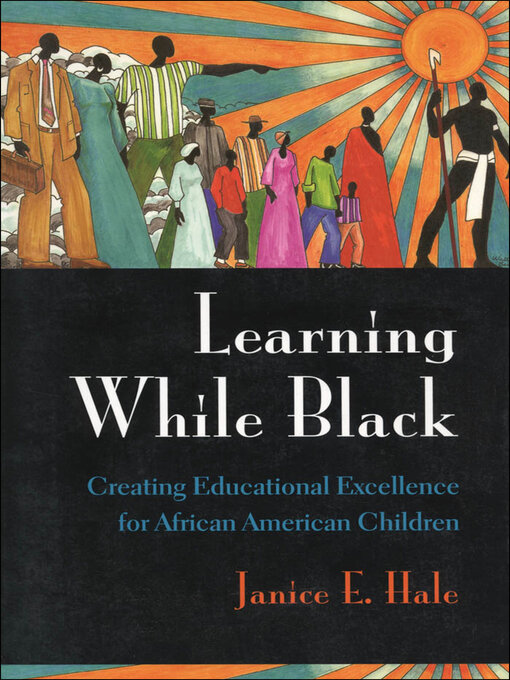In Learning While Black Janice Hale argues that educators must look beyond the cliches of urban poverty and teacher training to explain the failures of public education with regard to black students. Why, Hale asks simply, are black students not being educated as well as white students?
Hale goes beyond finger pointing to search for solutions. Closing the achievement gap of African American children, she writes, does not involve better teacher training or more parental involvement. The solution lies in the classroom, in the nature of the interaction between the teacher and the child. And the key, she argues, is the instructional vision and leadership provided by principals. To meet the needs of diverse learners, the school must become the heart and soul of a broad effort, the coordinator of tutoring and support services provided by churches, service clubs, fraternal organizations, parents, and concerned citizens. Calling for the creation of the "beloved community" envisioned by Dr. Martin Luther King, Jr., Hale outlines strategies for redefining the school as the Family, and the broader community as the Village, in which each child is too precious to be left behind.
"In this book, I am calling for the school to improve traditional instructional practices and create culturally salient instruction that connects African American children to academic achievement. The instruction should be so delightful that the children love coming to school and find learning to be fun and exciting."—Janice Hale


